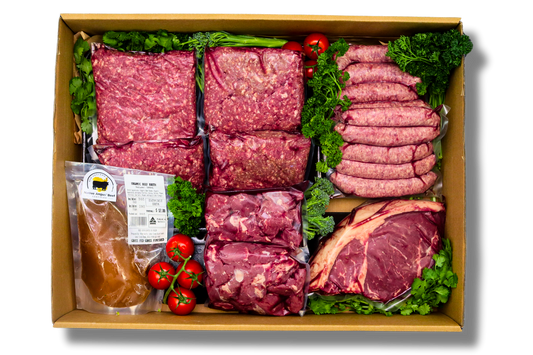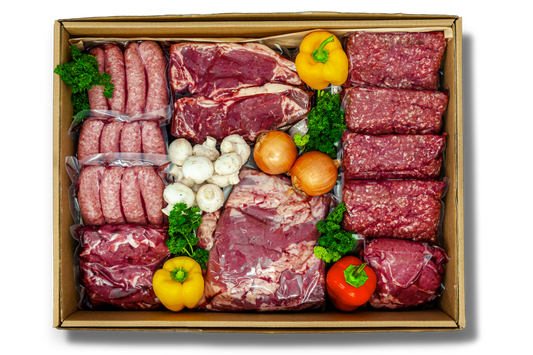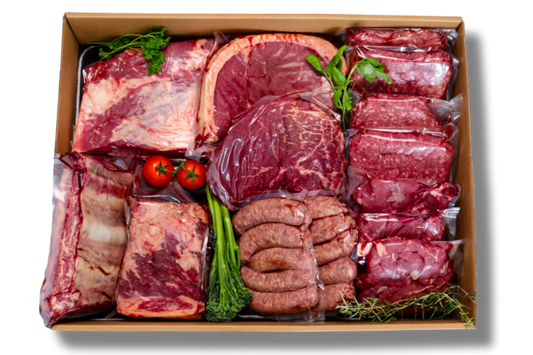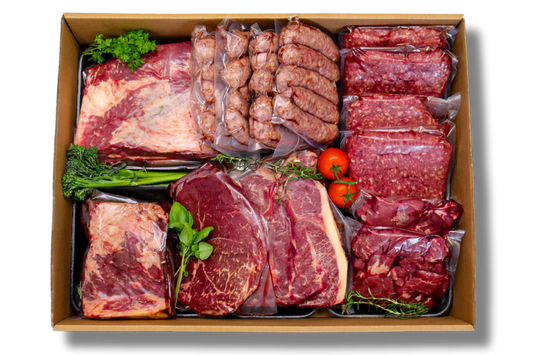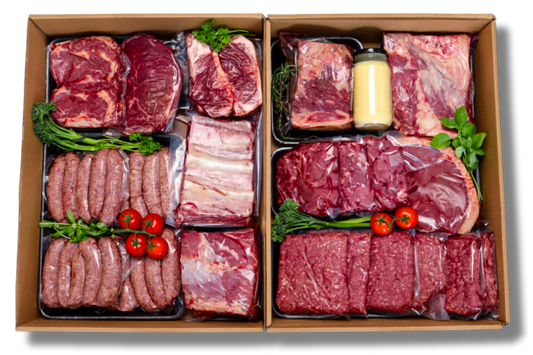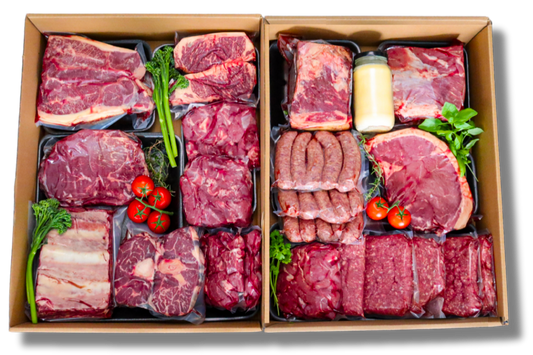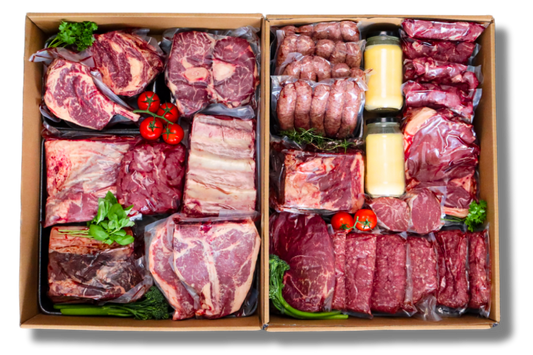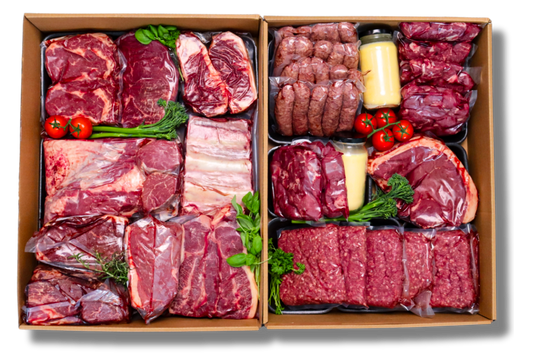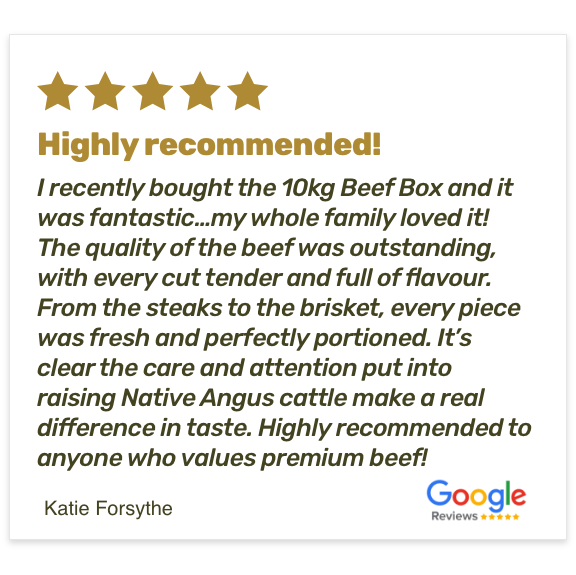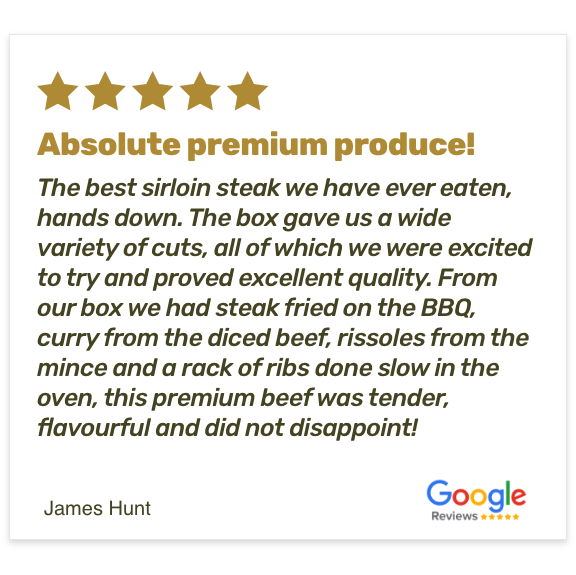Quiet Hooves, Calm Herds: Why We Use Horses to Work Our Cattle.
At Arrawatta Station, the way we work is shaped by the country around us. Our farmland is a mix of open native pastures, interspersed with river gorges, rocky outcrops and challenging terrains. It's the kind of land that calls for a practical, steady approach, and that is exactly how we like to manage our cattle.
A cornerstone of our approach is low-stress stock handling. The way cattle are handled affects not only their welfare but also the quality of the beef they produce. Calm cattle experience less stress, which means better overall health and a more consistent eating experience for the people who choose our beef.

"Salute", one of our stock horses at Arrawatta Station
Our stock horses are central to this. They're not just working animals, but trusted partners. Horses move quietly and naturally among cattle, using gentle cues based on pressure and release. They read the herd, respond to subtle changes in body language, and guide cattle without noise or agitation. In our terrain, their sure-footedness is invaluable. They can traverse rocky outcrops, navigate creek crossings and move through bush country where motorbikes would struggle and cause unnecessary disruption.
But this quiet way of working is about more than practicality. It's about respect.
Respect for the cattle, who respond best when handled in a way that honours their instincts.
Respect for the land, by reducing erosion and disturbance.
And respect for our customers, who trust us to deliver beef that has been raised with care from start to finish.

Salute having a run with friends - our stock horses at home at Arrawatta Station.
Low-stress handling is just one part of our broader animal management philosophy. Our cattle live entirely on pasture, never fed grain or given hormones, antibiotics or synthetic chemicals. We manage our land regeneratively, focusing on soil health, biodiversity and long-term sustainability. Every decision we make, from grazing rotations to genetics, is about producing healthier cattle, improving the land under our care and providing beef that is naturally nutrient-dense.
We know people care more than ever about where their food comes from and how animals are treated. Using stock horses is part tradition and part common sense for the future. For us, farming works best when it is about working with the animals and the land, not against them.
From paddock to plate, every step is guided by that principle. Quiet hooves, calm herds, and beef you can feel good about.
By Susan Hendry, Co-Founder, Native Angus Beef
